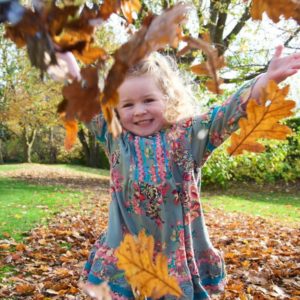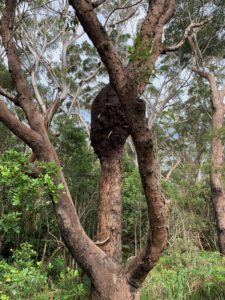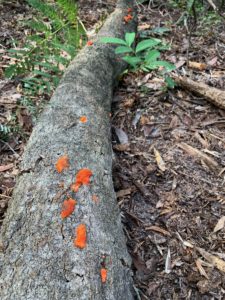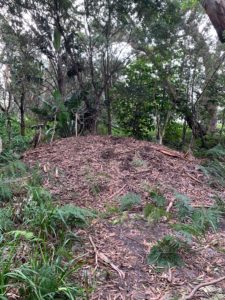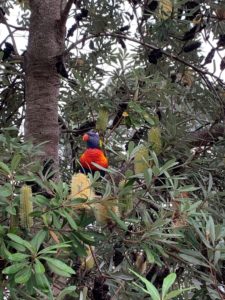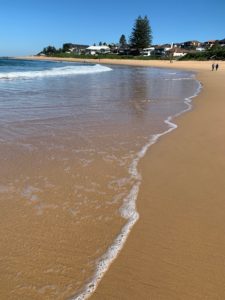
It is time we look closely at the blue dot (29th May 2020)
it’s easy to forget we are one tiny planet
spinning in space with one cosmic destiny
we fragment our fragile home into warring factions
today a race war in Minnesota
a power play in Hong Kong
a terrorist attack in the middle East
Brexit breakdown in Great Britain
pointing the finger blaming others
we too easily drift daily into divides
and at the same time a virus
so tiny it is invisible
attacks our world
our health and economy in lockdown
people hiding in panic and fear
no wall partition rampart or barricade
no shield barbwire even an electric fence
can save us
no gun rifle cannon or even a nuclear bomb
no armour submarine or super jet
no armour-plated bullet proof bomb protected artillery
can save us
are we blind to the photographs
like that of Earthrise taken in 1968 from the Voyager 1
are we deaf to Carl Sagen’s words spoken
after seeing earth from Apollo 8 in 1990
warning us to cherish this pale blue dot – our earth
a dust mote suspended in a sunbeam – the only home we have!
This virus called covid-19 has us in its grip
but even now the ruling class look away
our earth is sick it needs healing
the fault lines of poverty inequality<
can be turned around
giving everyone a voice
a share in the abundance
mother earth gives over and over without complaint
until she collapses under the weight of injustice
her waters shrivel
she becomes unwell
splutters with drought fire famine
it is time for all of us to wake
rise up
be the light
for the fear and dark of minds
ask what comes now
what comes next
imagine a new future
walk forwards
hand in hand
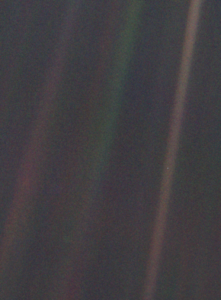
( There is a dot like a pixel half way down the orange light. That is the earth)
The Earth, our planet is a lonely speck in the great developing cosmic dark.
In all this vastness there is no hint that help will come from elsewhere to save us from ourselves.
The earth as far as we know, is the only world to harbour life.
There is no where else in which our species can migrate -visit maybe, yes. Settle, no. Not yet.
Like it or not, the earth is where we make our stand.
Our folly of killing one another , of building walls and our posturing of, we’ll decide who come’s here and under what circumstance they come” (think fires drought pandemic)!
The pre-posturing that goes on
we’ll keep you safe
we’ve stopped the boats
we are hard on border patrol.
We promise you jobs jobs and more jobs and to keep you safe . We have bought big orange rubber boats to get out there and turn refugees back to the poverty they come from . We take no responsibility for humanity.
The delusion we have of some privileged position in the world or even in the universe is challenged by the distant image of our world . We can only be humbled at the photos .
Now it is time to find our responsibility to care for our one precious earth and our people in all their colours cultures and codes cherish this pale blue dot “a dust mote suspended in a sunbeam -“the only home we have “ Carl Sagan.
Photos from NASA inspired by Brain Pickings . Thankyou Maria Popova
The Plan Blue Dot captured from 3.7 billion miles away Earth appears as a tiny dot half way halfway down the orange stripe on the right.
The little dot is about two to three pixels big so not very large. When you get the grander of the scenes i get chills down my back because there here is our planet, bathed in this ray of light and it just looks incredible special.
EarthBlue Dot photo taken from Voyager 1 Spacecraft 1990
Earthrise photo taken from Apollo 8 24th December 1968.
I found this photo which is clearer to find the blue dot

The Blue Dot is half way along the right orange stripe. Amazing that is us .
Read Carl Sagans on The Blue Dot
From this distant vantage point,
the Earth might not seem of any particular interest.
But for us, it’s different.
Consider again that dot.
That’s here. That’s home. That’s us.
On it everyone you love, everyone you know,
everyone you ever heard of,
every human being who ever was,
lived out their lives.
The aggregate of our joy and suffering,
thousands of confident religions,
ideologies, and economic doctrines,
every hunter and forager,
every hero and coward,
every creator and destroyer of civilization,
every king and peasant,<
every young couple in love,
every mother and father, hopeful child,
inventor and explorer,
every teacher of morals,
every corrupt politician,
every ‘superstar,’ every ‘supreme leader,’
every saint and sinner in the history of our species
on a mote of dust suspended in a sunbeam.
And Mayo Angelou on The Blue Dot
A BRAVE AND STARTLING TRUTH
We, this people, on a small and lonely planet
Traveling through casual space
Past aloof stars, across the way of indifferent suns
To a destination where all signs tell us
It is possible and imperative that we learn
A brave and startling truth
And when we come to it
To the day of peacemaking
When we release our fingers
From fists of hostility
And allow the pure air to cool our palms
When we come to it
When the curtain falls on the minstrel show of hate
And faces sooted with scorn are scrubbed clean
When battlefields and coliseum
No longer rake our unique and particular sons and daughters
Up with the bruised and bloody grass
To lie in identical plots in foreign soil
When the rapacious storming of the churches
The screaming racket in the temples have ceased
When the pennants are waving gaily
When the banners of the world tremble
Stoutly in the good, clean breeze
When we come to it
When we let the rifles fall from our shoulders
And children dress their dolls in flags of truce
When land mines of death have been removed
And the aged can walk into evenings of peace
When religious ritual is not perfumed
By the incense of burning flesh
And childhood dreams are not kicked awake
By nightmares of abuse
When we come to it
Then we will confess that not the Pyramids
With their stones set in mysterious perfection
Nor the Gardens of Babylon
Hanging as eternal beauty
In our collective memory
Not the Grand Canyon
Kindled into delicious color
By Western sunsets
Nor the Danube, flowing its blue soul into Europe
Not the sacred peak of Mount Fuji
Stretching to the Rising Sun
Neither Father Amazon nor Mother Mississippi who, without favor,
Nurture all creatures in the depths and on the shores
These are not the only wonders of the world
When we come to it
We, this people, on this minuscule and kithless globe
Who reach daily for the bomb, the blade and the dagger
Yet who petition in the dark for tokens of peace
We, this people on this mote of matter
In whose mouths abide cankerous words
Which challenge our very existence
Yet out of those same mouths
Come songs of such exquisite sweetness
That the heart falters in its labor
And the body is quieted into awe
We, this people, on this small and drifting planet
Whose hands can strike with such abandon
That in a twinkling, life is sapped from the living
Yet those same hands can touch with such healing, irresistible tenderness
That the haughty neck is happy to bow
And the proud back is glad to bend
Out of such chaos, of such contradiction
We learn that we are neither devils nor divines
When we come to it
We, this people, on this wayward, floating body
Created on this earth, of this earth
Have the power to fashion for this earth
A climate where every man and every woman
Can live freely without sanctimonious piety
Without crippling fear
When we come to it
We must confess that we are the possible
We are the miraculous, the true wonder of this world
That is when, and only when
We come to it.


























